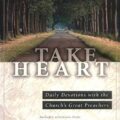 By: Kelvin Oliver
By: Kelvin Oliver
T4JYM: Who have been your biggest influences in life? Who have been your biggest influences in your life as a writer?
GT: Biggest influences usually come young; I’d point to three. My boyhood pastor, Eugene Boggess, preached the sermon that led me to ask Jesus into my heart. His practical preaching and patient counsel gave me a solid footing throughout high school. The next major influence came in college:
Brady Bobbink, my campus pastor. His teaching and example helped me to understand the service side of faith—putting the Kingdom of God above my own agenda. And then in seminary, Dr. Klaus Bockmuehl showed me how it is possible to mix our intellect with our spiritual passion. I have been very fortunate with wonderful examples.
As a writer, I think my biggest influences have been other writers: Dietrich Bonhoeffer, C.S. Lewis, and Elton Trueblood.
T4JYM: Have any of your books received positive or negative feedback, or comments, from the public?
GT: They all get reviewed, and to date I don’t think I’ve ever received a negative review. And last time I checked, they all have five (out of five) stars on Amazon.com, so I think I’ve been spared some of the negative reaction. But every writer should expect some negative; when you put your stuff out there, you become a target. It’s interesting: the book that has won the biggest award, the Gold Medallion Award, probably has the least amount of sales. Sacred Marriage wasn’t even a finalist for this award, yet it has sold over 120,000 copies and continues to sell at a brisk pace. You just can’t let stuff like that drive you.
T4JYM: How do you find time to write? Life is busy and time management is hard to do sometimes. When do you do your best writing and where?
GT: Well, writing is what I do—it’s my vocation, so finding time isn’t very difficult. Before I was published, I made time by getting up at 5:00 a.m., and working on weekends and holidays. It really helps if you love to do it; then it doesn’t seem like such a sacrifice.
I do my best writing early in the morning. My office is in my home.
T4JYM: Who are some of the authors you read? Why do you like their works?
GT: I love to read the Christian classics; they lift me out of my culture and help remove my generational blinders. Lately, I’ve been reading a lot of Elton Trueblood. He challenges both my mind and my heart; I’m a better person when I’m reading one of his books.
T4JYM: What training do you have in writing? Did you take any writing courses in college to obtain the skills you have currently?
GT: I was an English literature student in college, and after college I worked in jobs where there was a lot of writing. Writing is like anything else—the more you do it, the better you get. If someone wants to be a writer, I’d say write all you can, and then get honest feedback. Just about every piece of work can be improved by cutting. I had a wonderful editor who just tore apart the first draft for my first book; she’d cross out entire sections, writing, “This is repetitive and boring.” My wife said she’d be devastated to get that, but I was so grateful for the feedback, and I wanted the book to be a good read. It must have worked, because that book is still in print ten years after it was first published—that’s not all that common these days. Good writing is re-writing; the first draft needs to be torn apart, cut down and reworked.
Take all the writing classes you can.
T4JYM: When did you start writing? What kind of writing did you begin with? Do you do any other writing for fun?
GT: I’ve always wanted to be a writer. I was about eight years old when I first started writing. I couldn’t imagine doing anything else. I started out writing fiction and some day I’d like to start publishing novels.
T4JYM: What advice would you give to someone who wants to pursue a career in writing?
GT: This is a tough, tough business to crack into. You’ve got to prepare yourself for a lot of rejection and take a long-term approach. If you want to write nonfiction, start out by writing some articles; prove yourself in smaller markets, then work up to larger ones, and then approach publishers. Too many people want to go from having published absolutely nothing to getting a big book contract. That rarely happens, and even if you do get a book contract, it’ll probably be pretty small so the book will receive little publicity. You’ve got to pay your dues, so get published everywhere you can, hone your craft, and make yourself look like a good investment. Publishing is still a business, and if a publisher doesn’t think you’re a wise investment, they won’t part with their money.





Be the first to comment